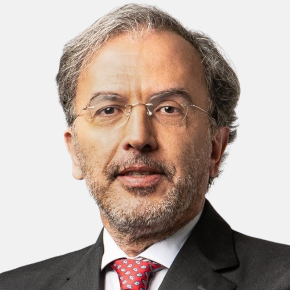
General corruption prevention regime Portugal: Obligations for companies
Certain companies in Portugal must fulfil new anti-corruption obligations. This includes adopting a compliance programme or appointing a compliance officer. Failure to comply with these requirements could result in fines. The Ecovis experts explain the details.
The National Anti-Corruption Mechanism and the General Corruption Prevention Regime (Decree no. 109-E/2021) were created under the 2020-2024 national anti-corruption strategy. The National Anti-Corruption Mechanism (MENAC) is the independent administrative entity responsible for supervising companies in the implementation of the General Corruption Prevention Regime (RGPC).
Contact us


Which companies are affected?
The RGPC imposed new obligations on numerous entities including, among others, legal persons based in Portugal that employ 50 or more workers and Portuguese branches of legal persons based abroad that employ 50 or more workers.
What requirements must companies meet?
The affected entities are required to adopt a compliance programme (the implementation of which is the responsibility of the management or executive body) which must include:
- A plan for the prevention of corruption risks and related offences (PPR)
- A code of conduct
- A training programme
- A reporting channel
Entities must also appoint a compliance officer to ensure and supervise the implementation of the compliance programme. They must perform their duties independently, permanently and with decision-making autonomy. The respective entity must ensure that the compliance officer has the internal information and the human and technical resources necessary to perform their duties properly.
In addition, private entities are also required to implement procedures and internal control mechanisms covering the main corruption risks identified in the PPR, as well as procedures for prior assessment of risks relating to third parties acting on their behalf, suppliers and customers. These procedures must be adapted to the risk profile of the entity being assessed.
The RGPC also provides for a penalty regime for non-compliance, as the General Regime for the Protection of Whistleblowers (Law no. 93/2021 of 20 December 2021) that covers non-compliance related to the implementation of reporting channels.
“We advise you on how to correctly implement your anti-corruption obligations.”
Carlota Maia Ferraz, Associate Lawyer, RBMS – Member of ECOVIS International – Lisbon, Portugal
Who is liable for administrative offenses?
Liability for administrative offences lies with:
- Legal persons or equivalent entities when the acts were committed by the heads of their bodies, agents, representatives or employees in the exercise of their functions or on their behalf and for their account.
- The heads of the administrative body or directors of legal persons or equivalent entities, the person responsible for compliance, as well as those responsible for the management or supervision of areas of activity in which an administrative offence is committed, when they commit the acts or if they knew or should have known of their occurrence, they have not taken the appropriate measures to put an immediate end to them.
The law came into force on 7 June 2022, and the penalty regime applies to all companies subject to it since 7 June 2024. In addition, the MENAC platform became operational in November 2024, and so 2025 marks the year of the first submissions. It is therefore important that companies ensure compliance with their obligations. Otherwise, they risk being subject to fines in the context of an inspection by MENAC, which recent changes in its governance model will certainly determine the adoption of supervision and fiscalisation measures.



